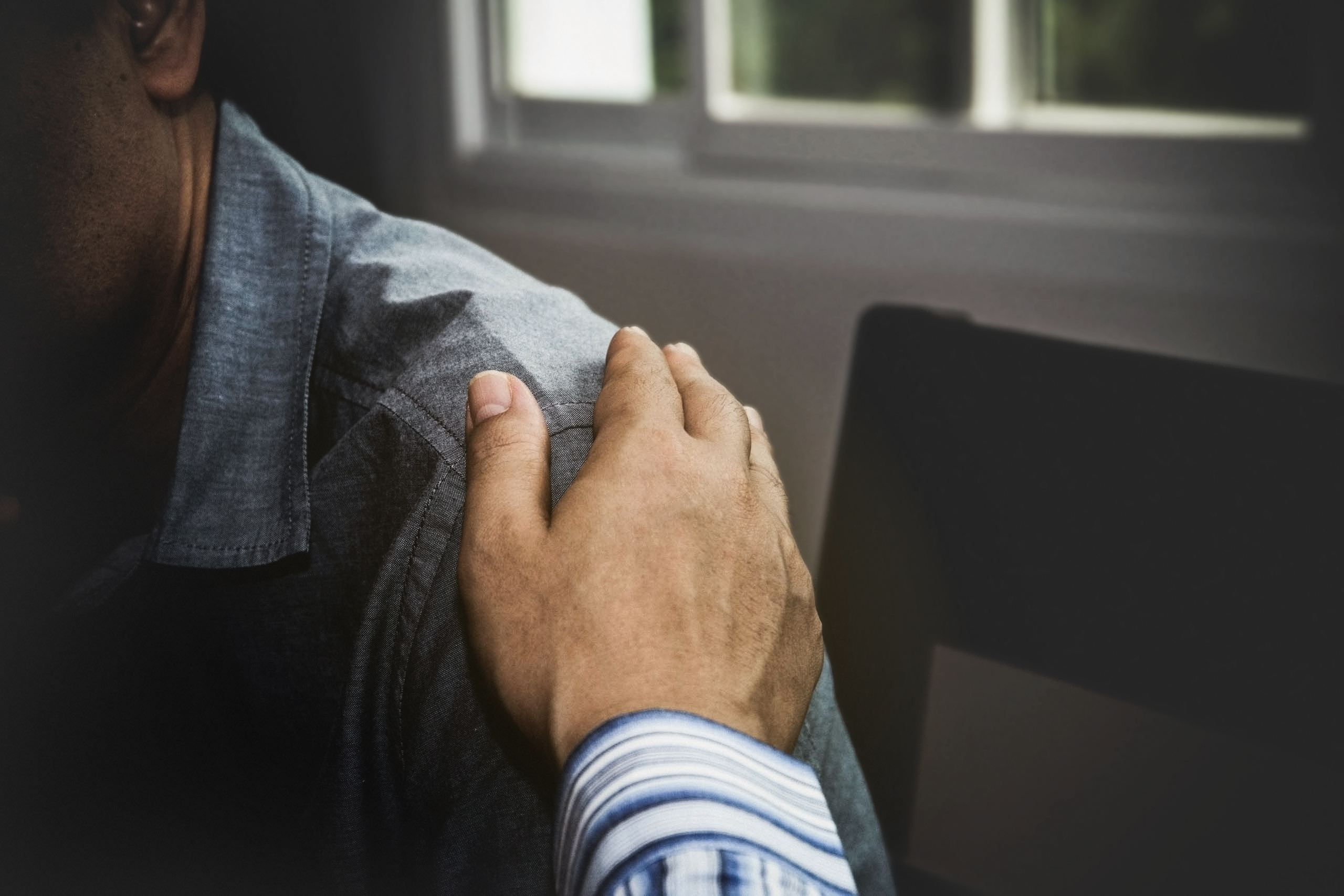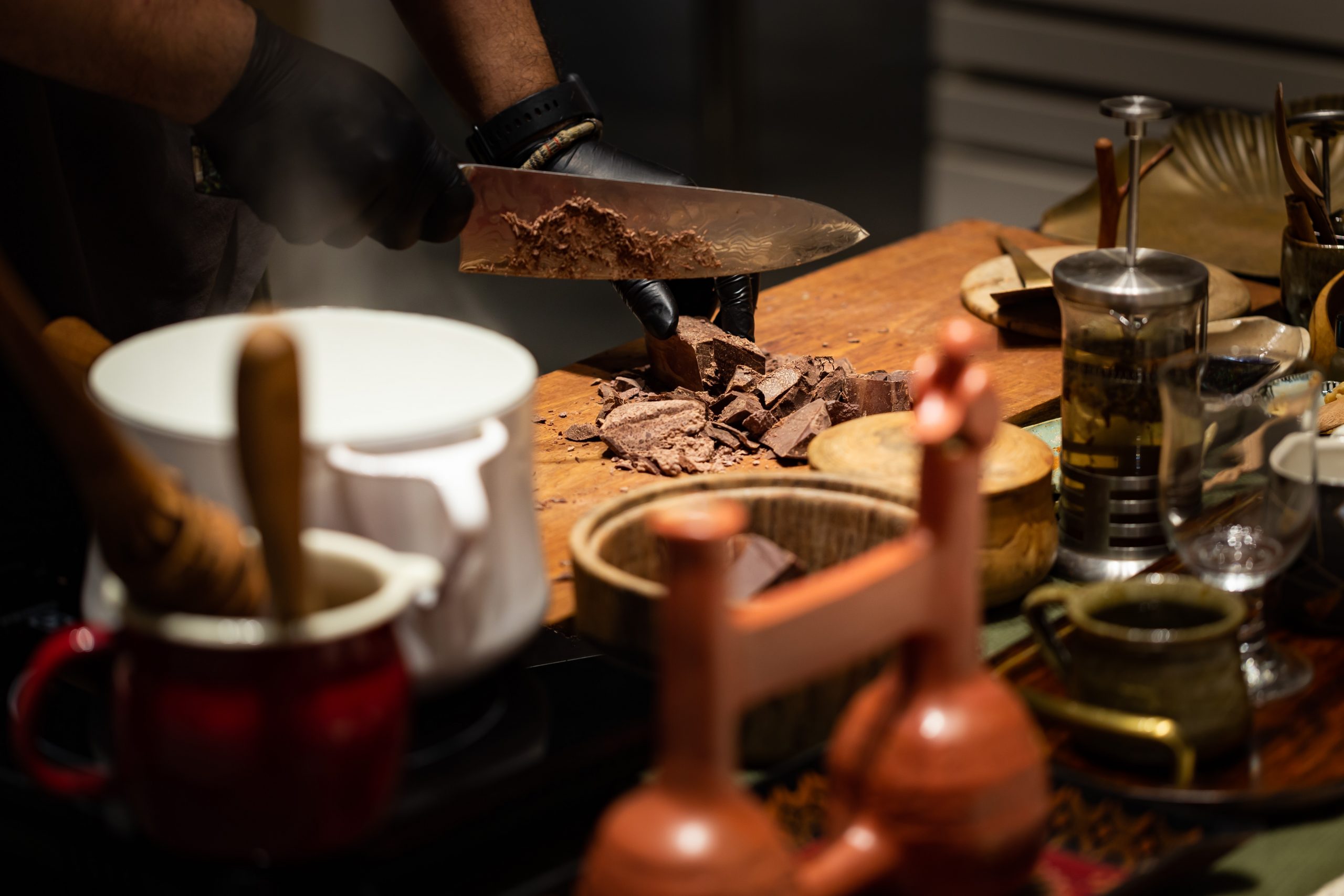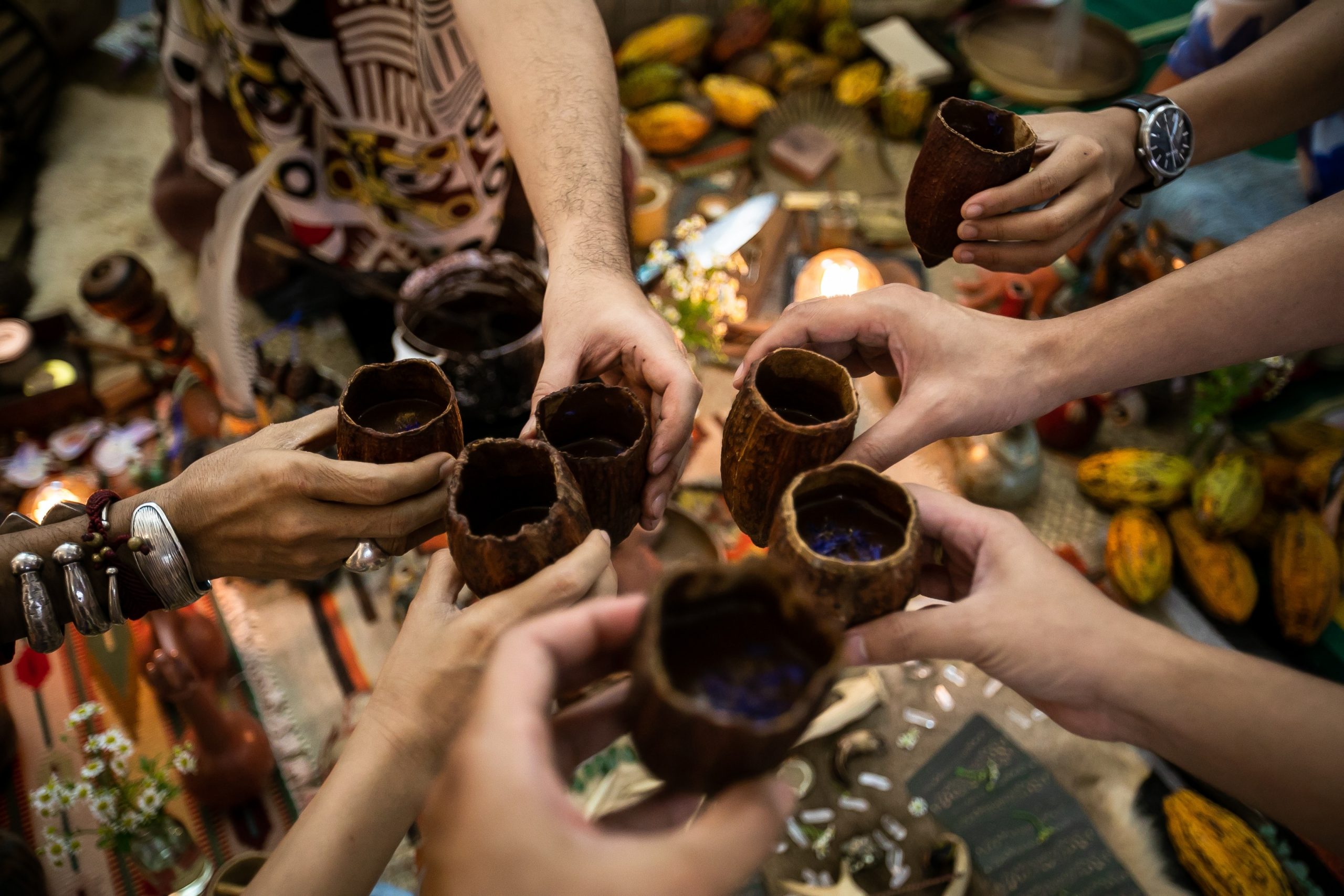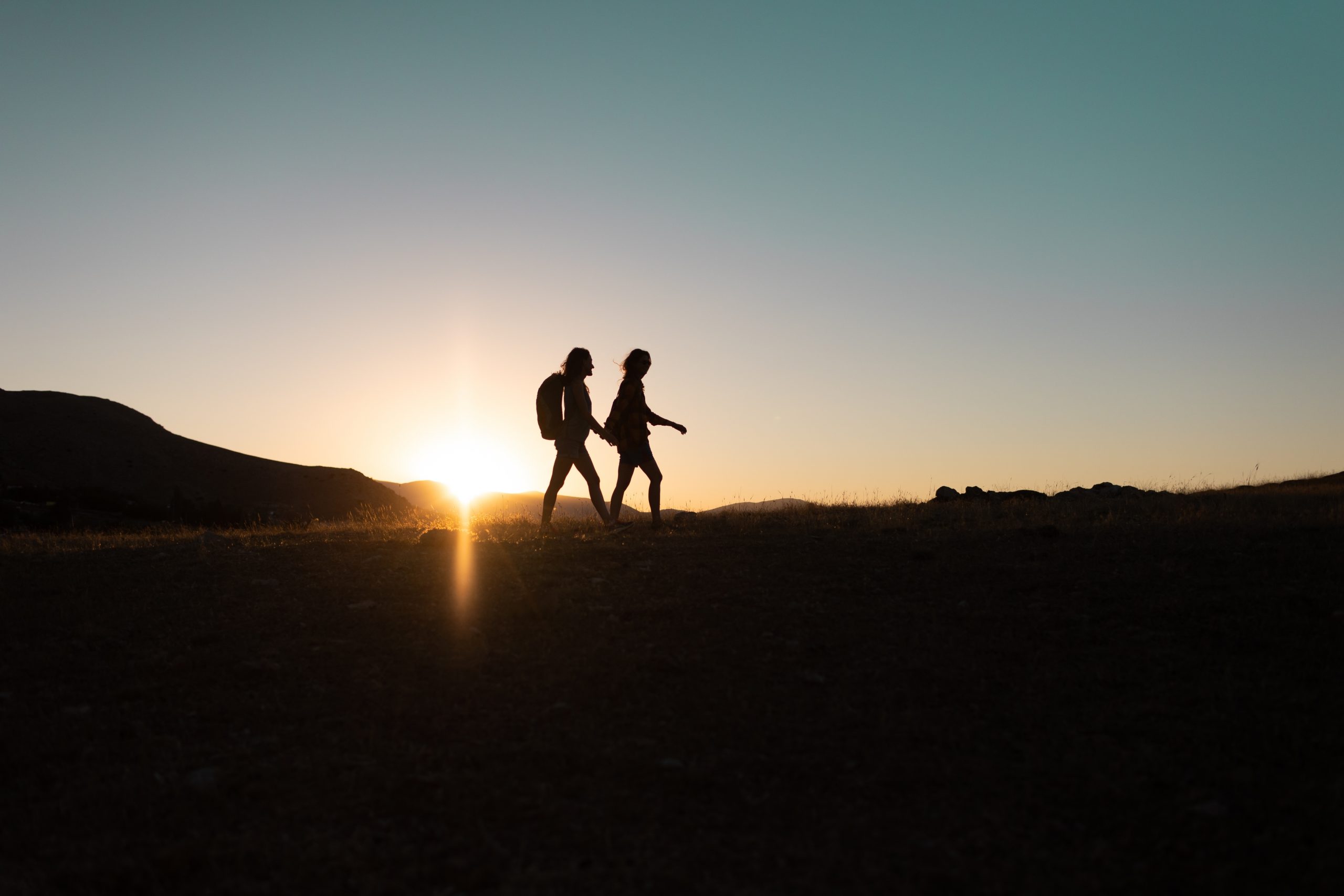
in this article
- Introduction
- Ensuring Physical Safety
- Emotional Support
- Redirecting Attention
- Technical Support
- Help to Prepare for and Integrate Experiences
- Help to Find Further Support
- Which Types of Support Can You Offer?
- Final Thoughts
Are you 18 or older?
Please confirm that your are 18 years of age or older.
You are not allowed to access the page.

Disclaimer: The views and opinions expressed in this article are those of the authors and do not necessarily reflect the official policy or position of the Chemical Collective or any associated parties.
Would you like to support someone in having a psychedelic experience?
You’re not alone.
With more and more people experiencing the benefits of psychedelics, an increasing number of people are wanting to provide these experiences for people close to them. It’s natural, because often when you experience benefits from something, you want to share it. This includes with friends and family, and anyone you know who you feel might benefit.
But what are the ways we could support someone? Is it like being a therapist? Or a friend?
As I explored in the last article, Exploring The Many Hats of Psychedelic Support, there are many ways of offering support, and many frames that we can use if we’re helping someone. That last article was something of a thought exploration to get you thinking.
In this article, I’d like to explore the different ways of supporting someone through a psychedelic experience in more concrete terms. To do so, I’ll look at various ways you can do this, including ensuring someone’s physical safety, offering emotional support, guiding or redirecting attention, technical and practical support, and prep and integration.
I’ll end with a few questions to get you thinking about how you might like to or be able to support someone.
Without further ado; let’s get into them.

The first and most basic aspect for a facilitator who is present during a psychedelic session is ensuring a person’s physical safety. This can take many forms, so here I’ll look at a few dangers, and how a facilitator can help avoid them and ensure physical safety.
This means knowing where the journeyer is at all times, and when necessary, keeping an eye on them, or checking in on them.
This is to make sure that they come to no physical harm. Physical harm might come about by any number of ways. It could be by accident, or in more extreme cases and if someone is having an intensely difficult experience, it might be somewhat deliberate. I’ll look at these two.
As psychedelics can affect a person’s motor skills and basic functions, accidental physical harm might be caused by something as simple as a person tripping over, falling down stairs, or cutting themselves on a sharp surface.
For example, once during a session with friends, a friend of mine cut her finger on the sharp edge of a tin lid whilst opening a tin of nuts. We had to clean the wound, patch it up, then apply pressure to it to prevent the blood from flowing. We were all tripping at the time, which made it a little more complicated, but it was a lowish dose so it was manageable.
By keeping an eye and helping out when needed, a facilitator can help prevent these kinds of accidents, or manage any situations like this that may arise.
A person’s sense of balance can also be severely affected by psychedelic substances, so a facilitator can help them with walking to the bathroom, or moving about as required.
A journeyer may also be moving their body quite energetically. There can be many reasons for this during a psychedelic session. A strong moving or flowing or energy might be some form of somatic release. A traumatic release of stored energy in the body might manifest as shaking. Whilst this is happening, a facilitator can make sure that they don’t bang into any hard surfaces.
For example, if a journeyer is lying down and shaking close to a wall, there is a danger that they will knock their head against the wall. Or that they will shake off their mattress onto a harder surface. In this situation, a facilitator can place a pillow by the journeyer’s head, or prevent them from coming off their mattress or mat.
Finally, in some cases, someone may be harming themselves. This may be subconscious, such as pulling one’s own hair or digging nails into one’s own skin. In other cases it may be more extreme and a person has a wish to harm themselves which could manifest for any number of reasons relating to a person’s mental health history and/or mindset at the time of the experience.
Firstly, before the session starts, a facilitator can help to formalise an agreement between all parties that any form of harm is not allowed during the session. However, if this manifests for any reason, a facilitator can intervene to help avoid this.
This might initially be in the form of words, such as a phrase like ‘You’ve harmed yourself enough already, you don’t need to harm yourself anymore’. In more extreme cases, a facilitator can be on hand to physically intervene, or call for extra assistance if needed.
Another method in which someone may come to physical harm during a psychedelic experience is if they are on contraindicated medication. This means any medication that carries a risk of certain dangerous effects.
I am neither a doctor or a pharmacist, so I won’t give advice here, but if someone you know is planning a psychedelic session, you can support them by helping to find out if any medication they are on is contraindicated.
The Spirit Pharmacist has an antidepressant and psychedelic interaction guide that is a great source of information and you can access here. Also, an article on Medical Contraindications to Classic Psychedelic Use can be found here. These are good places to start.

Outside of physical safety, one can also offer emotional support to those going through psychedelic processes. Psychedelics can bring up intense feelings, and journeys can be intense and emotional experiences, so some kind of emotional support can be extremely valuable.
During a session, a facilitator or friend can help to offer anxiety. If anxiety bubbles up, this might be done by reassuring the journeyer that they are safe, and that they are having a temporary experience.
Emotional support may also come in the form of holding space. Simply being present and receptive to the journeyer, giving them space for their experience, and accompanying emotions to unfold. The mere presence of someone being there can be reassuring and help to lower anxiety.
‘“Holding space” means being physically, mentally, and emotionally present for someone. To listen, with full attention and focus, without judgment.’
Physical touch can also be a tool that can be comforting and reassuring. This might be in the form of a gentle hand on the shoulder or a hand to hold. It might also come in the form of a warm hug. Of course it goes without saying that all touch should be consensual.

Lowering anxiety might also be done by helping to redirect the journeyer’s attention. A simple but powerful and effective way to do this is to help bring their attention to their breath.
This can be done like a simple guided meditation, just observing the flow of the breath. Breathing in, breathing out. Aware of breathing in, aware of breathing out. It may also be one of their inner resources.
Redirecting attention can also extend beyond lowering anxiety. In the session, you might also offer support by helping to bring attention to their intention. Or it might be to follow intended navigation guidelines, such as by closing their eyes and directing their attention inwards.
Redirecting attention back to sensations in the body can also be grounding. This can be done with a few words; for example: ‘try noticing the physical sensations of your body as you lie down’, or with touch; like a gentle hand on the shoulder.

Another way of supporting someone with a psychedelic experience is with what I call technical support. This includes practical and logistical considerations like handling tools and managing the setting.
This can include taking notes for the journeyer, having them dictated, or handling audio or video equipment to make recordings. These recordings can be useful to help document the experience and aid in the integration process.
From an even more technical standpoint, one can help with setting up the music and being the ‘DJ’. This can include changing the music, turning the volume up or down, or skipping or repeating tracks. It can also include managing connectivity like bluetooth connections and cables. These technical things can turn out to be incredibly difficult for someone who is on a high dose of a psychedelic substance, so don’t underestimate what this support can do! It can allow the journeyer to leave aside these concerns and focus on their journey, and ultimately have a much deeper and richer experience.
This physical setting is of course important, and one can also help with preparing and maintaining the space, making sure that it is and remains conducive to the intended unfolding of the experience.
This can include cleaning up and clearing away any ‘debris’, such as plates, tissues, or emptying out vomit buckets. It can also mean bringing over blankets or pillows, preparing snacks, making teas and refilling water glasses.
It can also mean decorating the space, with images, plants or flowers. Moreover, it might also mean burning some incense or sage, opening a window to allow fresh air into the space, or adjusting the heating to ensure the space is at a comfortable temperature for the journeyer.
Handling the space will also mean taking care of any unexpected issues, like a blocked toilet or an unexpected visitor knocking at the door.

Finally, outside of being present for the session, one can also offer support by helping one to prepare for and integrate their experience.
Preparation may include helping someone to crystallise and focus their intention, cultivate their inner resources, or choose a playlist.
In the integration phase, it might be by lending an ear for them to talk through their experience. This can help to process the experience, and to identify any key themes, learnings or insights that one may wish to carry forward in an active integration of their experience.
Support might also take the form of offering some sort of accountability for any goals or aims that have been identified by the journeyer in the wake of their experience.

Finally, if one feels they are not directly up to offering the support that a journeyer needs, they might support them by helping them find someone who is.
For example, if someone feels they are not able to facilitate a psychedelic experience for their friend adequately, they might help them find someone who is. They might look for a facilitator or guide with the relevant experience, or a psychedelic retreat that suits their needs.
Similarly this assistance in seeking the right support may also come after an experience, in the integration phase.

To finish, I’d like to offer a few questions for you to consider if you would like to support others in their psychedelic processes. These will help you to identify how and where you might help.
If you’re serious about supporting others, you might like to journal your answers.

So there we have it. There are a wide range of ways to support someone before, during, and after a psychedelic experience. It’s important to know your limitations and understand when you can’t offer the appropriate support for someone directly. However, remember that you do not necessarily need letters after your name to help someone and make a real difference in their psychedelic journey, and their life.
If someone you know is interested in or even already planning a psychedelic journey, you may well be able to offer some kind of support as mentioned above and help them on their way.
Best wishes out there.
Stay safe, journey well.
John Robertson | Community Blogger at Chemical Collective | mapsofthemind.com
John is one of our community bloggers here at Chemical Collective. If you’re interested in joining our blogging team and getting paid to write about subjects you’re passionate about, please reach out to David via email at blog@chemical-collective.com

Welcome to Chemical Collective.
Create an account to earn 200 welcome points.
Already have an account? Sign in


Check out our Community Blog and get involved with the conversation. You will be awarded 50 x ChemCoins for each comment up to a limit of 250 total ChemCoins.


Have you purchased any of our products? Reviews and reports are so important to the community. Share your honest opinion, and we’ll reward you with 50 ChemCoins for each review!


Every time you complete an order with us, you’ll be awarded ChemCoins for each Euro spent.
Welcome to Chemical Collective.
Create an account to earn 200 welcome points.
Already have an account? Sign in

Earn commission every time someone makes a purchase through your link.
When you become an affiliate, you will be allocated a unique link to share with your friends, followers, subscribers, or Aunt Susan.
You can choose to payout the commission earned once per month, or save it up to receive on a rainy day! Commission earned is 5% of the total order value per referral.
Contact us to join the Chemical Collective family and become an affiliate.
share your toughts
Join the Conversation.
Great article. I regret that I didn’t know about it earlier. It would be useful.
nice
another great article, good job
There are also volunteers online who you can chat and feel okay, I forgot the name of the site. But thats great initiative.
Great read , very interesting
Thanks for great article! <3